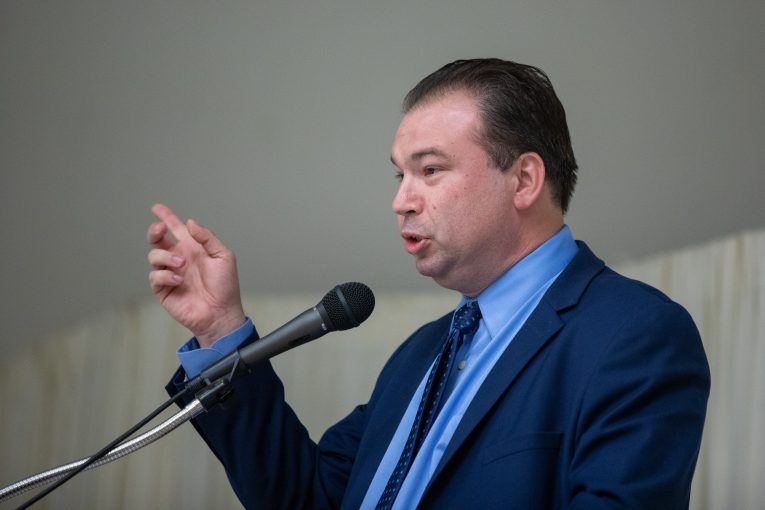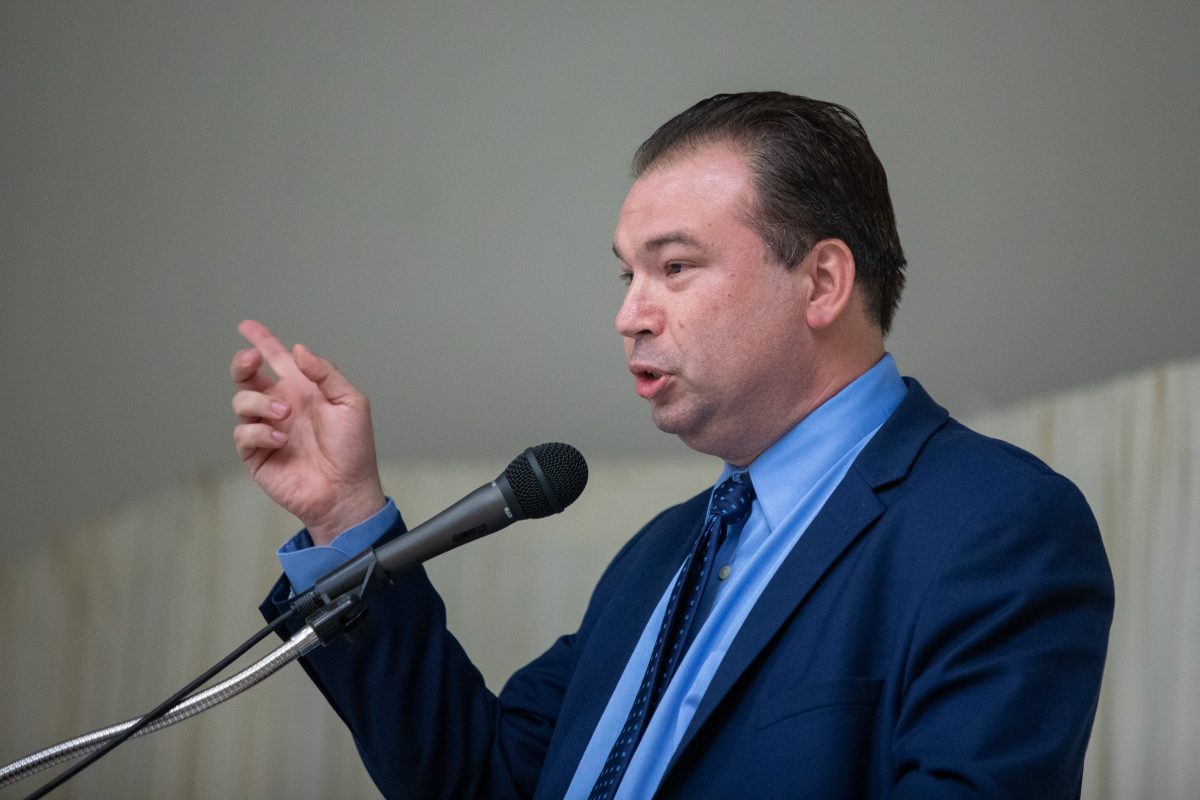

By Jeffrey Deskovic
In the July 22nd, 2010 issue of The Westchester Guardian, I wrote a column stating, “On June 8, 2010, a federal jury convicted former Chicago cop, John Burge, of perjury and obstruction of justice after Burge lied under oath in a civil case and insisted he never witnessed or participated in the torture of suspects. Burge was a Chicago cop from 1970- 83, and later promoted to Detective, Sergeant, Lieutenant, Supervisor of Detectives, Commander of the Bomb and Arson Unit, and finally, Commander of Detectives. Under his watch, suspects were burned, beaten, and choked until they confessed throughout the 1970s until the 1990s. Burge used other tactics to extract confessions, included placing bags over suspects’ heads, attaching electrodes to their genitals, and playing Russian roulette with a service revolver. Burge was fired in 1993 after he abused a suspect later charged with killing a Chicago police officer.
On Wednesday, March 16, 2011 Burge reported to prison to begin serving a 4 1⁄2 year sentence for his conviction. Despite the horror of his crimes, prosecutors were unable to charge him with torture because the statute of limitations had run out. However, they were able to charge him with perjury given the fact that he lied about it under oath during a deposition in the federal civil lawsuit of Madison Hobley. Hobley had been wrongfully convicted and sentenced to death based upon a coerced, false confession that Burge had tortured out of him prior to receiving a pardon based upon innocence from Gov. Ryan.
Melvin Jones, who served years for a murder he didn’t commit, said, “he put a gun to my head, and said a lot of things that I couldn’t mention here. He just did things I didn’t think a police officer was capable of doing.” Anthony Holmes also testified, saying that ‘prison robbed me family and my family of my life, and left him me with a nightmare I forever relive.’ He further said, “I don’t hate him. I hate what he did to me, and I hate the fact that nobody would listen to me when I tried to tell people about it, it fell on deaf ears.”
Andrew Wilson, who passed away while in prison pursuant to a confession Burge tortured out of him, had given testimony previously which was read on his behalf: “he [Burge] said you’re gonna [sic] give me a statement because my reputation is at stake.” Wilson described being beaten, suffocated, shocked and burned over a hot radiator. He stated that he was told to sign a confession and waive his constitutional rights. “I would have signed anything to keep from being tortured again.” During Burge’s previous trial, Nurse Patricia Reynolds gave testimony about Wilson’s “torture,” telling jurors that she saw linear burn marks on Wilson’s chest and leg and that one of the officers said Wilson fell. asked whether the injuries were consistent with falling, she replied, “No. Not to me.” At one point Reynolds says one of the officers drew his gun and stated Wilson did not want treatment. She asked Wilson, who nodded.
Jeff Burge, the defendant’s brother, had urged the court not to send his brother to prison, in view of prostate cancer, heart problems, and other health problems. “Almost any sentence will be a death sentence. I don’t want to see him die in prison.”
John Burge apologized for the stain now on the Chicago Police, though he continued to deny any involvement or witnessing of police torture. Judge Lefkow told him that she did not believe his denials, and sentenced to him to 4 1⁄2 years. She further ordered that while incarcerated, Burge would have to answer questions in other sworn depositions, the subject of which is whether he tortured other people.
Hours after Burge reported to prison, a judge in Chicago freed Eric Caine, who had served 25 years out of a life sentence for a double murder based upon a confession beaten out of him, and incriminating statements that the police beat out of his co-defendant Aaron Patterson. Prosecutors conceded that without the coerced confession, they did not have enough evidence to re-convict him. Patterson, not only wrongfully convicted but sentenced to death, had previously been pardoned by Gov. Ryan in 2003; meanwhile, Caine remained imprisoned to this day.
There are about 20 men who are still behind bars who allege that Burge and his crew tortured confessions out of them, but whose appeals are exhausted. The Torture Inquiry and relief commission has been set up to examine those claims, and if they deem them believable, can recommend they receive evidentiary hearings in court. The commission has been slow, and doesn’t plan to review cases for months, and this has caused frustration. Additionally, judges are free to ignore those recommendations. Advocates are concerned that judges will ignore recommendations, and/or that the commission, unable to determine if a claimant is innocent or was simply a guilty person who happened to be tortured, will conclude that there is nothing they can do. Rob Warden, executive director of the center On Wrongful convictions, stated that enough evidence of torture has surfaced, and that there is no need for a case by case review, and that instead everybody should receive an evidentiary hearing.
Commentary
I again salute us attorney Fitzgerald for prosecuting and convicting Burge of torture. Considering Burge’s crimes, which irreversibly impacted the people wrongfully convicted and their families as well as the greater community, along with his muddying the waters as to the guilt or innocence of those arrested, and the length of time that his reign of terror lasted, his sentence was a mere slap on the wrist, and an insult. I agree with the sentiment of Darrell Cannon, who was wrongfully convicted based upon Burge’s tactics, “Far as I’m concerned what happened to him today is more than long overdue…he should be in prison for the rest of his life.”
There is no doubt that Burge and his fellow officers tortured others into confessing, and I therefore applaud the judge for ordering further video-taped depositions. Should Burge choose to again lie about it, he should be charged in each and every instance where it can be proved.
But Burge did not commit his crimes by himself, and each and every police office who either participated, looked the other way, or otherwise somehow came to know of it and remained silent, should be prosecuted and sent to prison. Additionally, both they and the municipalities in which they worked should be made to pay financial compensation to the victims, not that any amount of compensation could ever make up for the years of wrongful incarceration and suffering that doubtlessly took place in connection thereto, or for the torture.
Shame on the court system for not taking the allegations of police torture seriously and launching an inquiry and suppressing the tortured statements wherever the allegations could be substantiated. Instead, in typical fashion, suppression was denied, the statements were admitted into evidence, the defendants were convicted, and state and federal appeals were denied. shame too on the Chicago Mayor, local prosecutors, attorney General’s, and us attorney’s whose tenure overlapped Burge’s, who took no action against Burge and his men thus allowing them to continue to torture. So far as I am concerned, it was also a betrayal of the constitution when the prosecutors knowingly used the tortured confessions as evidence.
In terms of the men who remain incarcerated based other Burge coerced confessions, this seems like another instance of technicalities trumping substantive justice. Without a doubt, not only should evidentiary hearings be granted, but all of the convictions should be overturned and new trials ordered at which the tortured confessions are disallowed. While some guilty people may obtain reversals and potentially regain their freedom in cases where there is no other evidence, there is no way around that, thanks to Burge and his lack of legitimate investigative tactics and evidence gathering. To not grant the reversals and suppress the tortured confessions, however, would be to risk the continued incarceration of at least some innocent defendants.
“Jeffrey Deskovic, Esq, MA, is an internationally recognized wrongful conviction expert and founder of The Jeffrey Deskovic Foundation for Justice, which has freed 9 wrongfully convicted people and helped pass 3 laws aimed at preventing wrongful conviction. Jeff is an advisory board member of It Could Happen To You, which has chapters in CA, NY, and PA. He serves on the Global Advisory Council for Restorative Justice International, and is a sometimes co-host and co-producer of the show, “360 Degrees of Success.” Jeff was exonerated after 16 years in prison-from age 17-32- before DNA exonerated him and identified the actual perpetrator. A short documentary about his life is entitled “Conviction“, and episode 1 of his story in Virtual Reality is called, “Once Upon A Time In Peekskill“. Jeff has a Masters Degree from the John Jay College of Criminal Justice, with his thesis written on wrongful conviction causes and reforms needed to address them, and a law degree from the Elisabeth Haub School of Law at Pace University. Jeff is now a practicing attorney.
